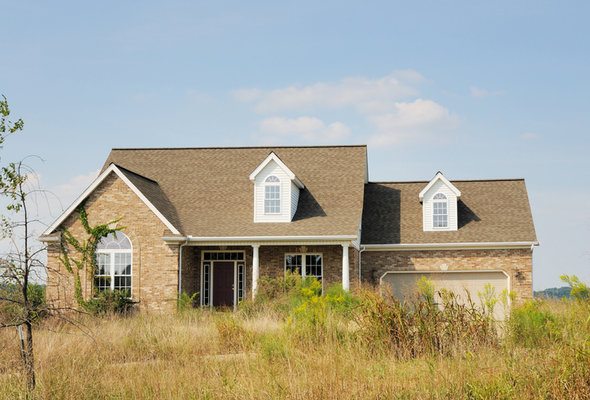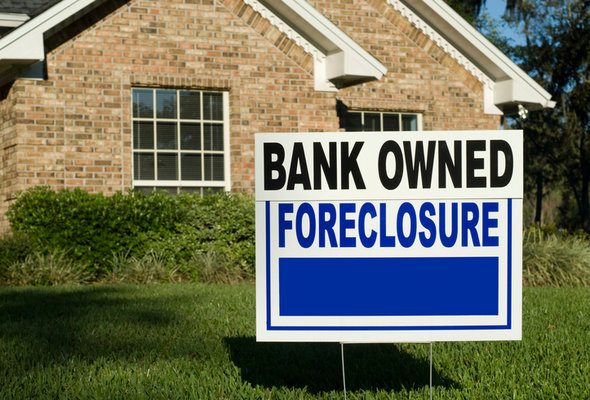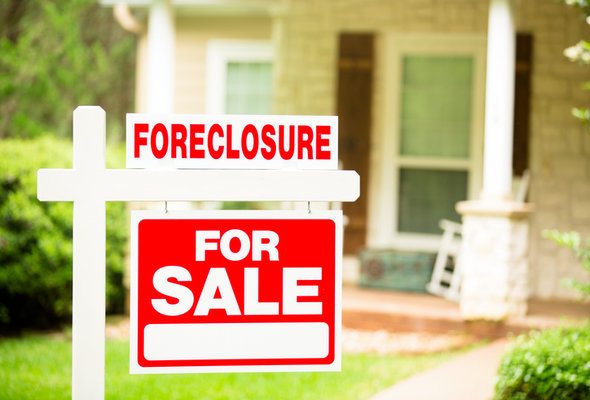Repossessed houses are houses that have fallen into default. If a homeowner can’t keep up with his or her mortgage payments, the bank may repossess the home. This process is also known as foreclosure. But what happens to repossessed houses once the bank takes them back? The answer depends on what the bank decides to do.
Check out our mortgage calculator.
Why Banks Repossess Homes
Banks like to say that foreclosure is a last resort. You may have heard that foreclosure and eviction are expensive for lenders, and that lenders prefer to keep homeowners in their properties. If a homeowner falls behind on mortgage payments, he or she may be able to work out forbearance or a payment plan with the lender. If not, the lender will issue a notice of default, which puts the home on a path to repossession.
Repossession is not an automatic process, however. In many states, repossession requires a lengthy notification period and an order from a judge. If a bank decides to undertake this process, it’s because the bank can’t or won’t work out an alternative with the homeowner in default.
What Happens Next

When a bank has repossessed a house that house becomes what’s known as a real estate owned property (REO). Investors and savvy homebuyers hunting for bargains may try to buy real estate-owned properties at foreclosure auctions, from the seller or from the bank. Banks will often sell repossessed homes for less than the homes are worth because they want to rid themselves of the burden of keeping the homes and make a quick sale.
If you’re thinking of buying a foreclosure property it’s a good idea to work with a real estate agent with experience in the foreclosure world. And unless you have plenty of cash on hand you’ll still need to prove your creditworthiness to qualify for a mortgage.
Banks don’t necessarily put repossessed homes up for sale right away. They may choose to sit on the property instead, hoping to get a better a price down the road or simply allowing the property to fall into neglect. No matter how long it takes a bank to sell a repossessed house, the bank is responsible for maintaining the property.
However, banks have been called out for failing to maintain REOs in minority neighborhoods. The National Fair Housing Alliance brought complaints with the Department of Housing and Urban Development against both Wells Fargo and U.S. Banks. The complaints allege that the banks violated the Fair Housing Act by allowing homes in black and Hispanic neighborhoods to fall into disrepair, as reported by ProPublica.
Bottom Line

It’s up to the bank whether to sell up or hold repossessed houses on its books. In some states, homeowners whose homes have been foreclosed retain the right to redeem the property if they can come up with the required funds within a certain time frame specified in the law. A private investor or buyer may step in during the pre-foreclosure stage to buy the property before the bank repossesses it. In short, not all distressed properties meet the same fate.
Update: Have more financial questions? SmartAsset can help. So many people reached out to us looking for tax and long-term financial planning help, we started our own matching service to help you find a financial advisor. The SmartAdvisor matching tool can help you find a person to work with to meet your needs. First you’ll answer a series of questions about your situation and goals. Then the program will narrow down your options from thousands of advisors to up to three registered investment advisors who suit your needs. You can then read their profiles to learn more about them, interview them on the phone or in person and choose who to work with in the future. This allows you to find a good fit while the program does much of the hard work for you.
Photo credit: ©iStock.com/fstop123, ©iStock.com/Purdue9394, ©iStock.com/KLH49
